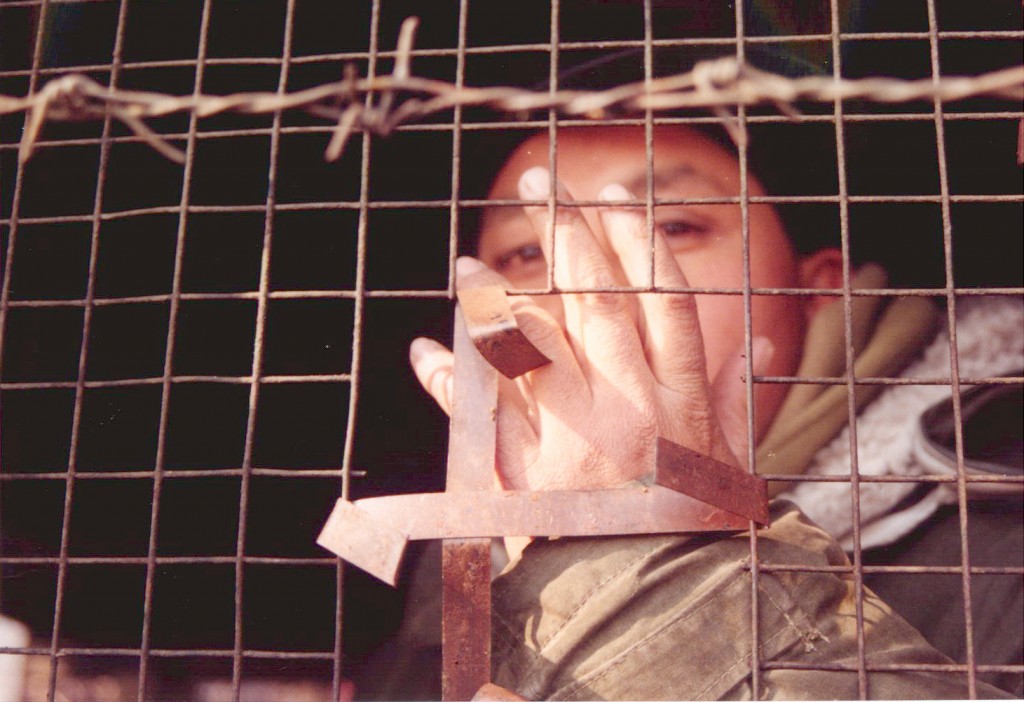Tell Them The Tree They Had Planted Has Now Grown, a powerful film made straight from the heart, is a cinematic diary of a Kashmiri revisiting Kashmir after a twelve year exile to witness the scars of a paradise lost. Through the film the filmmaker, a Kashmiri who was there last in November 1989 when militancy was just making its presence felt through random bombings and killings of the so-called ‘Indian agents’, mostly Kashmiri Hindus and leaders of the National Conference, returns to see if at all it was safe to return to Kashmir and to hear what people thought and felt about the long dark night that has reigned over Kashmir during this period. The film is repleted with personal memories of the people he meets (some new and some again) and places he revisits as he searches for a time now lost.
The film follows the filmmaker, Ajay Raina, an alumnus of the Film and Television Institute of India (FTII) and a Kashmiri, through his travails and he is occasionally seen on camera as he meets up with various people and revisits places from his past. He himself has also provided the narration for the film and recorded it in his own voice thus making it as personal a film a possible which is precisely the strength of the film. The filmmaker draws us into his journey as we meet his old acquaintances and visit his now empty house in Srinagar or his ancestral house in his village. Through this we feel for him and wonder along with him – will normalcy ever return to Kashmir? When will all these killings and violence ever end? Also to his credit, the filmmaker takes no sides in the issue of Kashmir but meets as many people as he can from all sides and lets everyone have their say thus getting a multifacted perspective on the issue and leaving the viewer with plenty of food for thought. One cannot be but shocked as one sees how resigned the people have become today to violence and killings as a normal part of their lives.
The camera freeflowing without being obstrusive in the least and often hand held moves smoothly with the protagonist and draws the viewer compulsively into the world of the filmmaker. The images of Kashmir stun you as what the filmmaker shows you is not the beauty of the landscape that one is accustomed to, but a land that looks ravaged and destroyed. This is no longer the Kashmir echoing with the cries of Shammi Kapoor’s Yahoo or Sadhana’s bouffants. It is today a land of much destruction and mass killings.
In spite of its grim theme, the film has several moments of warmth and humour as well. The filmmaker easily interacts with the various people he meets to get them to talk naturally to him. In a sequence where he speaks to the neighbour’s children, they ask him if Bombay has become Mumbai shouldn’t Bollywood now be called Mollywood?!
One did feel however that Ajay seemed bound by the length of the film having a lot more to say (The first cut of the film was in fact two and a half hours in length!) and consequently he has crammed in as much into his personal narration as he could. But this tends to make the film too verbose and at times a bit diffcult to view the visuals and hear the voice over at the same time. At times. one takes away from the other. Also to move personally with the filmmaker and his thoughts since it is him you are following through the film, perhaps one needed to see more of him and his reactions to the happenings around him in the film rather than just hear his voice over as cinema is much more of a visual medium rather than an aural one. On the technical side too sometimes the location sound was muffled and unclear. But these are minor complaints in an otherwise deeply moving film.
Tell Them The Tree They Had Planted Has Now Grown was funded by the PSBT (Public Service Broadcasting Trust) and Ajay was all praise for all the support given by producer Rajiv Mehrotra. But for his backing this film would not have been possible and indeed one must commend the PSBT for supporting this enterprise. The film has been shot on DV, a format being increasingly used by filmmakers the world over particularly for documentaries as this format makes it extremely easy to go with a minimum unit and manageable light weight equipment to far flung locations and shoot without difficulty. In fact the unit of this film comprised of just two people – the director himself and cinematographer Tanmay Agarwal. What’s more the director and cameraman have also doubled up as sound recordists and have taken turns at shooting the film. Ajay maintains that even with this small unit, it would still have been impossible for the film to be made without local co-operation. The film was shot over two weeks and has come down to its present edited length from over 40 hours of raw shooting material!
The film deservedly won the Golden Counch, Best National Documentary Award at the recently concluded Mumbai International Film Festival (MIFF 2002) and has also been telecast on Doordarshan.
English, Documentary, Color


